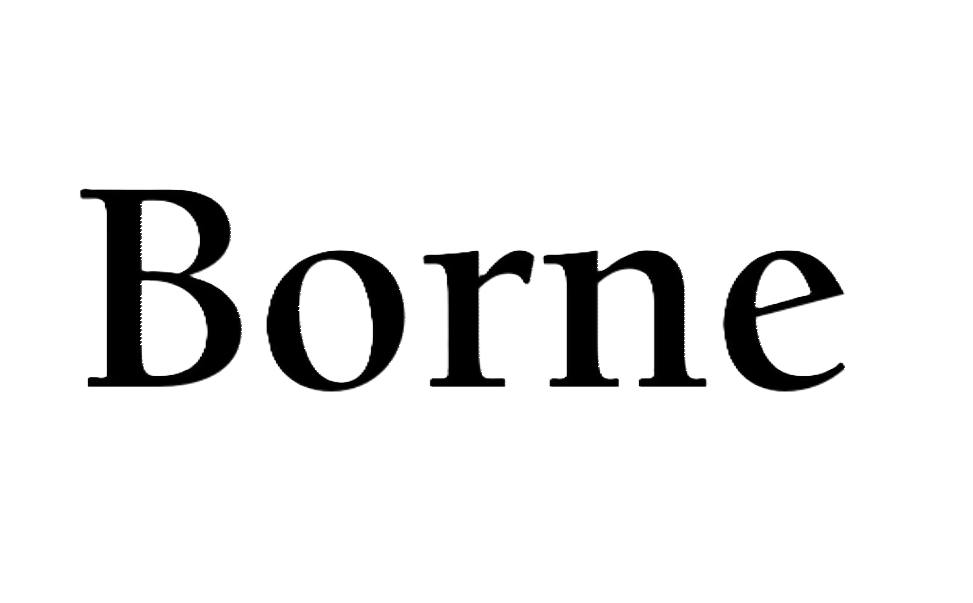
Why You Learn a Language 6x Faster with AI
Before you think this is some kind of a sensationalist title, notice something important. I didn’t say, like some other apps or services do, that you’re going to get fluent in a few weeks. We all know these claims are ridiculous. If there was a way to get fluent in a few weeks, wouldn’t everyone be doing it? There’s no substitute for hard work, practice and repetition. There are now ways though to operate more productively in how you learn a language. These insights are rooted in academic studies. There’s a logic chain to how I get to this 6x number. Yes, there’s real data. Alright, ready? Let’s go.
Why You Learn a New Language Faster with AI
Ok, so, here’s the plan. We’re going to walk through what gives you a real advantage you start to use AI to learn a new language. We’ll start with the flexibility these systems offer over a traditional learning path, and how this flexibility opens up more opportunities to learn. And, more opportunities to learn is scientifically proven to be more effective in retaining information. We’ll help you think about where to get started, and, look at how you’ll be saving money vs. other options. Let’s get to it!
Practice When You Want
Alright, so imagine being able to practice speaking a foreign language anytime you want, without the need to schedule a lesson with a tutor or to wait for your next class. There’s just a freedom that comes with that flexibility. We all lead busy lives, schedules change and times that seem like they’ll work for your tutoring session end up not being ideal when it comes down to it. Then, there you are paying for a tutoring session you scheduled a week ago at what you thought would be a good time, and your head isn’t in the game because it just didn’t turn out to be a good time.
But, then there’s other times when you want to push. You might have just watched an inspiring movie and you’re ready to crank. You just watched Kygo live from the Troll’s Tongue and you’re ready to work on your Norwegian. But, hey, it’s kind of a random hour and you can’t just book something right then. You should be able to practice speaking then though, and AI language learning apps like Borne let you do that. It’s flexible learning. They’re always ready to go, 24/7. You don’t have to have a PhD in linguistics to know that it’s consistent speaking practice that’s going to make you better.
And, getting in consistent speaking practice is just easier when you can do it when you want.
Knowing is not enough; we must apply. Willing is not enough; we must do.
– Johann Wolfgang von Goethe
Getting the Time to Do It
Alright, cool. I finally have a flexible learning tool, something I can practice my conversation skills with to learn a language faster and more effectively. I’m busy though. Where do I get the time?
Well, let’s start with how you spend your time on your phone. We’re all different, but, for the sake of this exercise, let’s say you can figure out how to adjust your day to give you three 10-minute sessions learning a language a day. Some might say that’s not enough, I can do more. Go for it. But, for the sake of this exercise, the average person spends between 3 and 5 hours on their phone each day, 2 of which are on social media.
This, of course, varies by country and age, but you get the idea. It’s personal though, so check your own screen time in your phone settings and see if you have roughly 30 minutes each day you can carve out from something? If it’s not screen time, might it be TV time, video games or something?
For the sake of this article, let’s say that we can take three 10-minute sessions out of each day for language learning. Alright, 210 minutes, or three and a half hours, each week ready…

Where Do I Start?
Good stuff! So, we’ve now figured out how to free up 30 minutes, or 2% of the 24 hours in a day, to make this language learning goal happen this year. Now, it’s a question of where you should start. That’ll depend on what you’re trying to achieve. If you’re trying to write or read French literature, then it might be different from someone who is planning to spend a year in Buenos Aires.
Let’s simplify it a bit though. Most of us are trying to learn a language to communicate and speak with other people. It’s pretty straightforward. It might be to sound less like a tourist on a trip to a new country, it might be to connect with a new in-law, it might to win the respect of a foreign colleague. But, it’s usually to converse and speak with the person in some way.
So, like we said earlier, we need to practice speaking the language to get ready.
Businesses have emerged that help to connect language learners with tutors. You schedule a session with a tutor in the app or on the service’s website, and then you can hop on Skype when your session starts. It really does help if you use it regularly. But, that’s the hard part, using it regularly. I used these services, and, even though I was motivated, I struggled to schedule a session more than once a week.
But, let’s say you’re going to use that tutoring service once a week. If you’re doing it on Preply as a new user, you’re getting 50 minutes a week. That’s how long a session lasts for most companies. So, you’re getting in 50 minutes a week of conversation. That’s great, and can really help make a difference. I noticed some improvements in conversation skills just doing it once a week! There are many fantastic tutors on Preply.
But, the point is it’s just easier to find a few short 10-minute windows at some random point in the day than an hour one day in the future. People pick up their phone when they have a spare few minutes, and, while numbers here vary a lot by country and age, most people pick up their phone over 100 times a day. We just have a lot more short windows in our day than we think, and this is a big advantage, because…
Shorter Bursts Are 50% More Effective – This is Key
Alright, here’s where we get to some data. The basic idea is that shorter, more frequent learning sessions are more effective for retention than longer, continuous sessions. You’ve no doubt experienced this. That super long lecture or meeting you sat through where your mind wandered off vs. a 10-15 minute briefing where you stuck with it. It’s not you, it’s rooted in cognitive psychology.
Hermann Ebbinghaus was a German psychologist from the late 1800s who studied memory and retention. He came up with an idea called the spacing effect, that learning is most effective when your sessions are spaced out. This prompted a whole field of memory research, and concepts we hear now in the language learning industry such as spaced repetition. His findings make intuitive sense.
For long-term memory retention, don’t cram, or pack too much into a single session.
Another term you’ll hear in this field is cognitive load theory. Here, the idea is that our working memory has capacity limits. You’ve probably had someone trying to explain something that was familiar to them but new to you, and you had to ask them to slow down. Or, that lecture where the teacher tried to pack too much in it, and your attention started to wander. Not your fault, it was cognitive overload!
Countless studies have been performed since our friend Ebbinghaus came up with the spacing effect. One study on this by Rohrer & Taylor in 2006 found that spaced learning leads to improvements of 50% or more in long-term retention over cramming. That is, by distributing their study sessions, the students had a 50% improvement in retention rates than those students who crammed!
So, getting back to our numbers, if you are able to practice speaking for 3 10-minute sessions a day, then you get in 210 minutes of practice. And, this is 50% more effective, making it the equivalent of 300+ minutes of a single study session (1.5 multiplied by 210 is 315). Compared to a single 50-minute session a week, you’re learning is 6x more effective and faster with these short sessions (315 divided by 50 is 6.3).
How an AI Language Learning App like Borne Can Help You
A key part of this 6x faster claim is having a flexible learning tool. Until recently, it really didn’t work to have an AI language tutor, as the technology wasn’t quite good enough. We dabbled, and the quality just wasn’t what you’d need for a commercially viable product. Now, all of a sudden, the quality is kind of shockingly good. Sure, it’s not perfect, but, it’s an extremely effective tool.
And, this technology is able to be packaged in an app on your phone like the Borne app, with other features such as pronunciation scoring, real-time grammar feedback and personalized lessons. So, suddenly, you have a high quality language partner available that you can use on-demand. That enables you to fill those short 10-minute windows throughout the day with a practice conversation!
And, that doesn’t just give you more time throughout the week, but it’s also a more effective way to learn for long-term retention, as evidenced by numerous cognitive psychology studies since Ebbinghaus published his groundbreaking work on spacing out learning sessions in 1885. You’re filling gaps throughout the day with productive language conversation, and spacing out learning to learn faster and improve retention.

Sure, But What About The Cost?
This all sounds great, but if you’re spending more time practicing speaking, a natural assumption is that you’re going to pay more for the end result. Not the case in this situation. There are a few AI language partners out there, and rates vary. But, for an hour with Borne, we charge on average $2 (USD). That allows us to cover our costs, most of which are to some third parties that help power Borne.
At 210 minutes, or 3.5 hours a week, that equates to $7 (USD) a week ($2 an hour multiplied by 3.5 being $7). For a single 50-minute session, an average rate of $20 (USD) is pretty normal. So, if you’re comparing time on an apples to apples basis, the cost of Borne is 90% cheaper ($2 vs. $20) than competing services. If you’re spending 4x (210 minutes vs. 50 minutes) more time learning, it’s still less than half the cost!
Ready to Learn a Language Fast with AI? Get Started Now
Alright, let’s recap. You want to learn a language, and specifically, you want to learn to speak it. So, you need to practice speaking it. It’s a lot easier to find a couple of 10-minute windows during the day than it is to schedule out a few days for a full hour. Check out your phone settings to see how many times you pick up your phone each day, and what your screen time looks like each day.
Now that you can take advantage of flexible learning with an AI language learning app like Borne, be sure to space out your practice sessions, as cognitive psychology studies indicate that spaced out sessions lead to a 50% improvement in long-term retention. Shift some of the unproductive time on your phone to practice speaking. Even practicing more, it’s still more cost effective than competing services.
By avoiding cognitive overload, speeding up your progress and using a more affordable learning platform, you’re more likely to stick with your learning, and achieve your goals. Here’s to your journey!
Eddie Duszlak
Eddie Duszlak is the co-founder and Chief Language Learner at Borne. Prior to Borne, he spent his career as a global investor, leading investments for some of the world’s leading institutions. He holds a B.A. in Asian Studies from Dartmouth College and an M.B.A. in Economics from the University of Chicago. A lifelong language learner, he is currently working on his Spanish and French in the Borne app daily from his home base in North Carolina.








